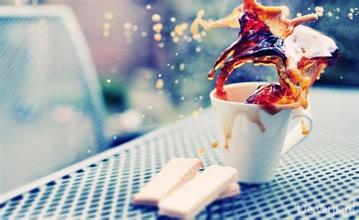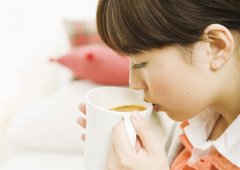Is coffee exhilarating or psychological?
The volunteers were randomly divided into two groups: the first group drank caffeinated coffee but learned that it contained no caffeine; the second group drank decaffeinated coffee but learned that it contained caffeine. The evaluation showed that people who regularly drank caffeinated drinks were as excited as those who rarely drank coffee after drinking a placebo.

Many people like to drink a cup of coffee in the morning in order to cheer up and start a busy day. Refreshing coffee in the morning may just be psychological, British researchers have found.
The effect of coffee is not obvious.
Researchers at the University of East London recruited 88 volunteers, aged between 18 and 47, who love coffee and drink at least two cups a day.
The volunteers were randomly divided into two groups: the first group drank caffeinated coffee but learned that it contained no caffeine; the second group drank decaffeinated coffee but learned that it contained caffeine. The researchers then asked volunteers to take a series of tests to assess their intellectual performance, reaction time and emotions.
The results showed that compared with those before drinking coffee, the first group of volunteers performed better in the color discrimination test, but the reaction speed was not faster; the second group of volunteers improved both in terms of color resolution and reaction speed.
Or it comes from psychological expectation.
In a report published in the journal hobby, the researchers concluded that coffee's pick-me-up may stem from psychological expectations.
The Daily Mail quoted researchers as saying on the 2nd: "this finding shows that the expectation of caffeine consumption increases sustained attention, and the effect is comparable to or even better than the effect of caffeine."
Previous studies have examined whether a cup of coffee in the morning is good for coffee lovers. Researchers have found that people who regularly drink caffeinated drinks such as coffee gradually develop "resistance" to caffeine stimulation.
The researchers studied 379 adults, half of whom never or rarely drank caffeinated drinks, while the other half regularly drank such drinks. They did not drink caffeinated drinks for 16 hours, followed by coffee or a placebo with no actual effect. The evaluation showed that people who regularly drank caffeinated drinks were as excited as those who rarely drank coffee after drinking a placebo.
Important Notice :
前街咖啡 FrontStreet Coffee has moved to new addredd:
FrontStreet Coffee Address: 315,Donghua East Road,GuangZhou
Tel:020 38364473
- Prev

Office workers who drink coffee in the morning are more likely to get tired.
Guide: many office workers go to work in the morning and feel particularly tired before they do any work. They want to drink some coffee or something to cheer them up, but they seem to be getting more and more tired. What's going on? Why is it so easy to get tired? According to Oprah magazine in the United States, some daily habits can also make people listless. The clothes are too loose. Wear loose and flexible clothes.
- Next

The difference between Italian Coffee knowledge and Coffee Latte
Cappuccino and latte are the two most common espresso in our coffee shop. We often get mixed up with these twins. Don't worry, it's not your problem. Even baristas often get it wrong. The proportion during this period is very subtle, and that's why coffee culture is so exquisite for us to explore. Proportionally: cappuccino and latte
Related
- Beginners will see the "Coffee pull flower" guide!
- What is the difference between ice blog purified milk and ordinary milk coffee?
- Why is the Philippines the largest producer of crops in Liberia?
- For coffee extraction, should the fine powder be retained?
- How does extracted espresso fill pressed powder? How much strength does it take to press the powder?
- How to make jasmine cold extract coffee? Is the jasmine + latte good?
- Will this little toy really make the coffee taste better? How does Lily Drip affect coffee extraction?
- Will the action of slapping the filter cup also affect coffee extraction?
- What's the difference between powder-to-water ratio and powder-to-liquid ratio?
- What is the Ethiopian local species? What does it have to do with Heirloom native species?

